Filter by
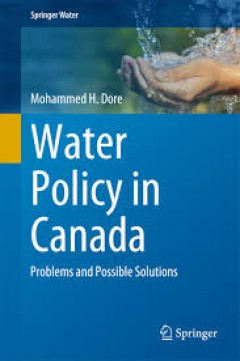
Water Policy in Canada Problems and Possible Solutions
This book deals with the water policy and management in Canada. It discusses various problems and risks in the fresh and drinking water supply in the second largest country in the world. Mohammed Dore argues that water is underpriced and used wastefully in Canada. In selected case studies, he illustrates the major threats from human activity to Canadian freshwaters and drinking water resources,…
- Edition
- -
- ISBN/ISSN
- 978-3-319-15883-9
- Collation
- -
- Series Title
- -
- Call Number
- -
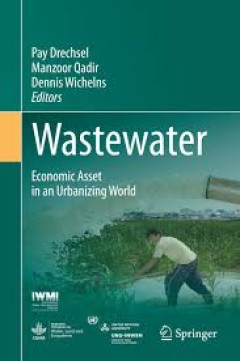
Wastewater Economic Asset in an Urbanizing World
The books provides a timely analysis in support of a paradigm shift in the field of wastewater management, from ‘treatment for disposal’ to ‘treatment for reuse’ by offering a variety of value propositions for water, nutrient and energy recovery which can support cost savings, cost recovery, and profits, in a sector that traditionally relies on public funding. The book provides new insi…
- Edition
- -
- ISBN/ISSN
- 978-94-017-9545-6
- Collation
- -
- Series Title
- -
- Call Number
- -
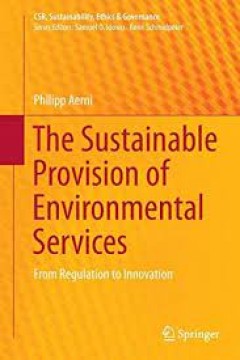
The Sustainable Provision of Environmental Services from Regulation to Inno…
This book addresses the ability of market-based instruments to improve the sustainable provision of environmental services. The author combines field research and insights from the multi-stakeholder dialogue at the FAO to analyze the gap between the predictions provided by theory and the corresponding outcomes in practice. In particular, the author challenges the theory behind Payments for Envi…
- Edition
- -
- ISBN/ISSN
- 978-3-319-19345-8
- Collation
- -
- Series Title
- -
- Call Number
- -
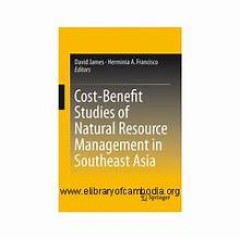
Cost-Benefit Studies of Natural Resource Management in Southeast Asia
This book applies cost-benefit analysis techniques in the management of environment and natural resources in developing countries of the Southeast Asian region and presents a compendium of studies conducted by researchers supported by the Economy and Environment Program for Southeast Asia (EEPSEA). It emphasizes the close relationship between the environment and natural resources and economic d…
- Edition
- 1
- ISBN/ISSN
- 978-981-287-393-4
- Collation
- Ekonomi
- Series Title
- -
- Call Number
- 330
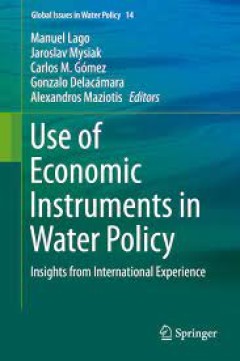
Use of Economic Instruments in Water Policy Insights from International Expe…
This book assesses both the effectiveness and efficiency of implemented Economic Policy Instruments (EPIs) in order to achieve water policy goals and identifies the preconditions under which they outperform alternative (e.g. regulatory) policy instruments and/or can complement them as part of complex policy mixes. The development of a consolidated assessment framework helps clarify (and where p…
- Edition
- -
- ISBN/ISSN
- 978-3-319-18287-2
- Collation
- -
- Series Title
- -
- Call Number
- -
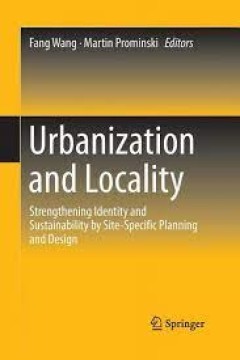
Urbanization and Locality Strengthening Identity and Sustainability by Site-…
Based on a discussion of conflicts in the urbanization process, this book provides theoretical and practical solutions for the preservation and development of urban localities. On the basis of informative case studies, it reveals the similarities and unique aspects of urbanization in Germany and China. The process of urban growth and the future trend of locality and urbanization are also examin…
- Edition
- -
- ISBN/ISSN
- 978-3-662-48494-4
- Collation
- -
- Series Title
- -
- Call Number
- -

Urban Transportation and the Environment Issues, Alternatives and Policy Ana…
The book deals with urban transportation planning in light of environmental sustainability and social equity. It begins with a review of the Indian urban transportation system and the issues surrounding it, and discusses the alternatives and policy directions that are being considered. It examines all the environmental issues arising out of transportation as a sector and assesses the alternativ…
- Edition
- -
- ISBN/ISSN
- 978-81-322-2313-9
- Collation
- -
- Series Title
- -
- Call Number
- -

Food Price Policy in an Era of Market Instability: A Political Economy Analysis
Food price volatility is one of the major challenges facing the global agricultural system today. This was most vividly illustrated during the global food crisis of 2007–9 when price spikes occurred for key staple food commodities—such as wheat, rice, maize, and soybeans. Given the variety of reactions by governments of countries experiencing similar food price shocks, the 2007–9 crisis o…
- Edition
- Ed. 1
- ISBN/ISSN
- 9780198718574
- Collation
- 544
- Series Title
- WIDER Studies in Development Economics
- Call Number
- 338.9 FOO f

Habitats and Biota of the Gulf of Mexico: Before the Deepwater Horizon Oil Sp…
Environmental management; marine; freshwater sciences
- Edition
- Ed. 1
- ISBN/ISSN
- 9781493934560
- Collation
- 891
- Series Title
- -
- Call Number
- 333.71 HER h

Nuclear Back-end and Transmutation Technology for Waste Disposal: Beyond the …
Effects of Radiation/Radiation Protection; Nuclear Engineering; Particle and Nuclear Physics; Waste Management/Waste Technology; Industrial Pollution Prevention; Nuclear fuel cycle; Environmental radiation; Nuclear transmutation; Accelerator-driven systems (ADS); Nuclear reactor; Radioactive wastes
- Edition
- Ed. 1
- ISBN/ISSN
- 9783319191683
- Collation
- 341
- Series Title
- -
- Call Number
- 333.71 NAK n
 Computer Science, Information & General Works
Computer Science, Information & General Works  Philosophy & Psychology
Philosophy & Psychology  Religion
Religion  Social Sciences
Social Sciences  Language
Language  Pure Science
Pure Science  Applied Sciences
Applied Sciences  Art & Recreation
Art & Recreation  Literature
Literature  History & Geography
History & Geography